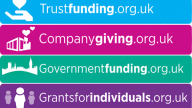Government and the Voluntary Sector, Policy, campaigns & research, Policy
New research shows more people benefiting from charity – a good thing?
The Charity Commission has published the results of an independent poll on trust and confidence in the Commission and in charity regulation more broadly. It makes for interesting reading – particularly given the big public debates around charity campaigning, governance and fundraising lately. How the regulator interprets and reacts to these issues, and the degree to which its decisions are based on ‘public opinion’ as presented in this research, will affect most charities and their trustees in some way in the future.
The survey focussed on three audiences: the wider public, charities (with over 1000 survey participants) and stakeholders (26 in-depth interviews). Overall trust in the work of the Charity Commission remains high from all three groups. Trust in charities and their regulatory framework is also comparatively high, in particular among the charity respondents.
However, what’s perhaps most interesting in the research isn’t the main topic of investigation – it’s what hasn’t really hit the headlines so far.
#EverybodyBenefits from charity
The really striking news in the survey was the increase in the number of people who say that they or a close family member have benefitted from charity services. 31% of respondents agreed to this statement (this stood only at 19% in 2015). 16% stated that either they or a family member has received money, support or help from a charity (compared to 10% in 2015). This apparent increase in people accessing charity services, juxtaposed against the lack of bigger announcements to support the sector in the Spring Budget and the recent Queen’s Speech, should be a wake-up call for policymakers. Is this a sign that charities are getting better at responding to need, or responding to more need?
Overall trust and confidence remains high – but it’s all relative
The public’s confidence in the Commission remained steady (6.0 out of 10) as compared to a previous survey in 2015, whilst charities’ confidence in the regulator dropped slightly but remained high (7.8 out of 10, compared to 8.3 in 2015). Individual stakeholder scores were also fairly positive (between 5 and 7 out of 10). When asked about the wider sector, the public seems to have the same level of confidence in the work of charities when asked about the trust in the sector as a whole. At 6.3 out of 10, this rating has bounced back against a dip to 5.7 shown in 2015. The public trusts the sector considerably more than other industries (financial markets were scored at 4.7, affordable housing at 4.3 out of 10).
Is regulation effective and is there a desire for more regulation?
The majority of those polled said that charities are regulated very or fairly effectively – but how informed is this sentiment? While only 38% of public respondents felt that they know the Charity Commission well, 58% agreed that regulation of charities was effective (a slight drop from 2015 when the figure was 64%). This disconnect between public consciousness about the Commission and the effectiveness of its regulation is a recurring problem in this research which makes drawing solid conclusions difficult. It’s a bit like saying ‘how environmentally friendly is your car’ when you don’t know if it runs on diesel, petrol or battery power, or whether you drive a motorcycle or a cement truck.
A better indicator may be perception of Charity Commission’s overall effectiveness among charities themselves: three out of four charity respondents think the regulator is effective which is a much higher proportion than for any other regulator (the General Medical Council follows at a mere 51%).
The public and charities also differ when it comes to the perceived levels of required regulation. 41% of the public think there is the right amount of regulation, compared to 55% of charities. Charities were also less likely say that more regulation is needed (16% agreed that there is too little compared to 33% of the wider public).
The Commission reads this as greater awareness of its role (and the role of charities overall) bringing rising expectations to the regulator’s work, in particular from the public.
Rising expectations can be dealt with – but not by charging charities!
One revealing aspect of the research sheds more light on the position of stakeholders when asked in detail about the role of the Commission and how its activities should be financed. There was some evident confusion about the strategic direction (shifting again from policing to providing more support?) and that future plans could be communicated better. However, when it comes to the Commission’s financing, stakeholder concerns echo many of DSC’s Campaign Against Charging Charities – namely that:
- many charities cannot afford it
- it would undermine the independence of the regulator and raise conflicts of interest
- it provides an incentive for Government to introduce further cuts once the new funding model is in place.
These messages are also in line with DSC’s previous short survey of charities asking about support for the Commission introducing fees. The vast majority of our respondents rejected this idea outright.
This evidence seems to support the idea of effective regulation by the Charity Commission. However, it doesn’t provide evidence to support charging charities for their own regulation. The Commission must take this message into account when thinking about a embarking on a formal consultation on charging later this year.
///
Read more on why charging charities for regulation is ‘penny-wise and pound foolish’
DSC wrote also Chancellor Phillip Hammond why charging charities fees for their own regulation is a bad idea earlier this year
Find the full survey report here and an infographic here.
Comments? Questions? Feedback? Send them to [email protected] or tweet me @dschweppDSC


